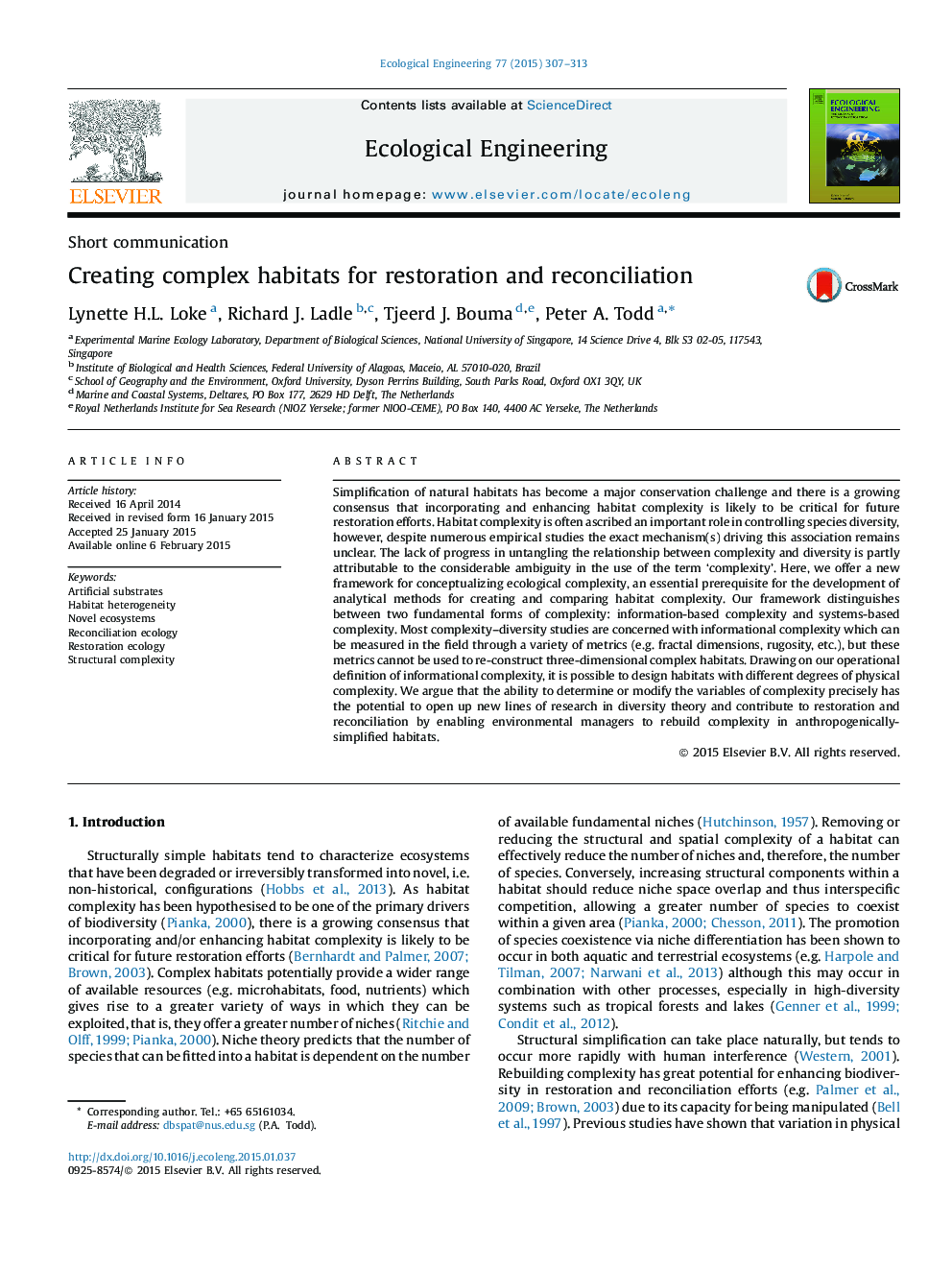| Article ID | Journal | Published Year | Pages | File Type |
|---|---|---|---|---|
| 4389277 | Ecological Engineering | 2015 | 7 Pages |
•Influencing habitat complexity is likely to become critical for ecological engineering efforts.•Due to a lack of precision in the use of the term, there exists much confusion over what complexity is.•We offer a new framework for conceptualizing and creating habitat complexity.•The ability to influence complexity precisely has the potential to open up new lines of research.
Simplification of natural habitats has become a major conservation challenge and there is a growing consensus that incorporating and enhancing habitat complexity is likely to be critical for future restoration efforts. Habitat complexity is often ascribed an important role in controlling species diversity, however, despite numerous empirical studies the exact mechanism(s) driving this association remains unclear. The lack of progress in untangling the relationship between complexity and diversity is partly attributable to the considerable ambiguity in the use of the term ‘complexity’. Here, we offer a new framework for conceptualizing ecological complexity, an essential prerequisite for the development of analytical methods for creating and comparing habitat complexity. Our framework distinguishes between two fundamental forms of complexity: information-based complexity and systems-based complexity. Most complexity–diversity studies are concerned with informational complexity which can be measured in the field through a variety of metrics (e.g. fractal dimensions, rugosity, etc.), but these metrics cannot be used to re-construct three-dimensional complex habitats. Drawing on our operational definition of informational complexity, it is possible to design habitats with different degrees of physical complexity. We argue that the ability to determine or modify the variables of complexity precisely has the potential to open up new lines of research in diversity theory and contribute to restoration and reconciliation by enabling environmental managers to rebuild complexity in anthropogenically-simplified habitats.
